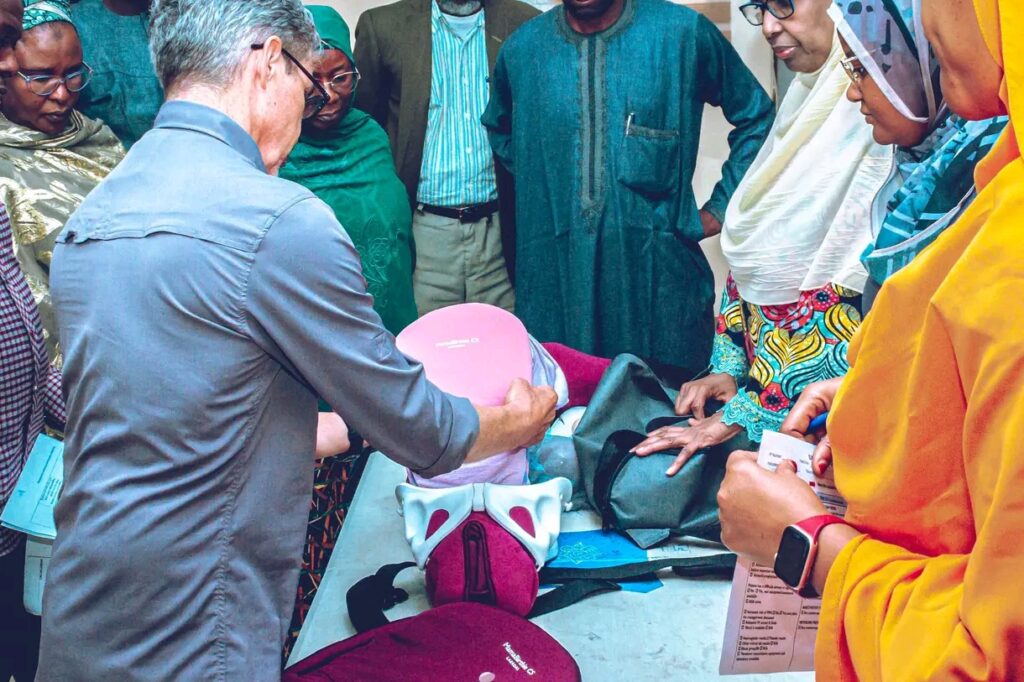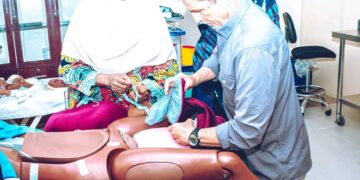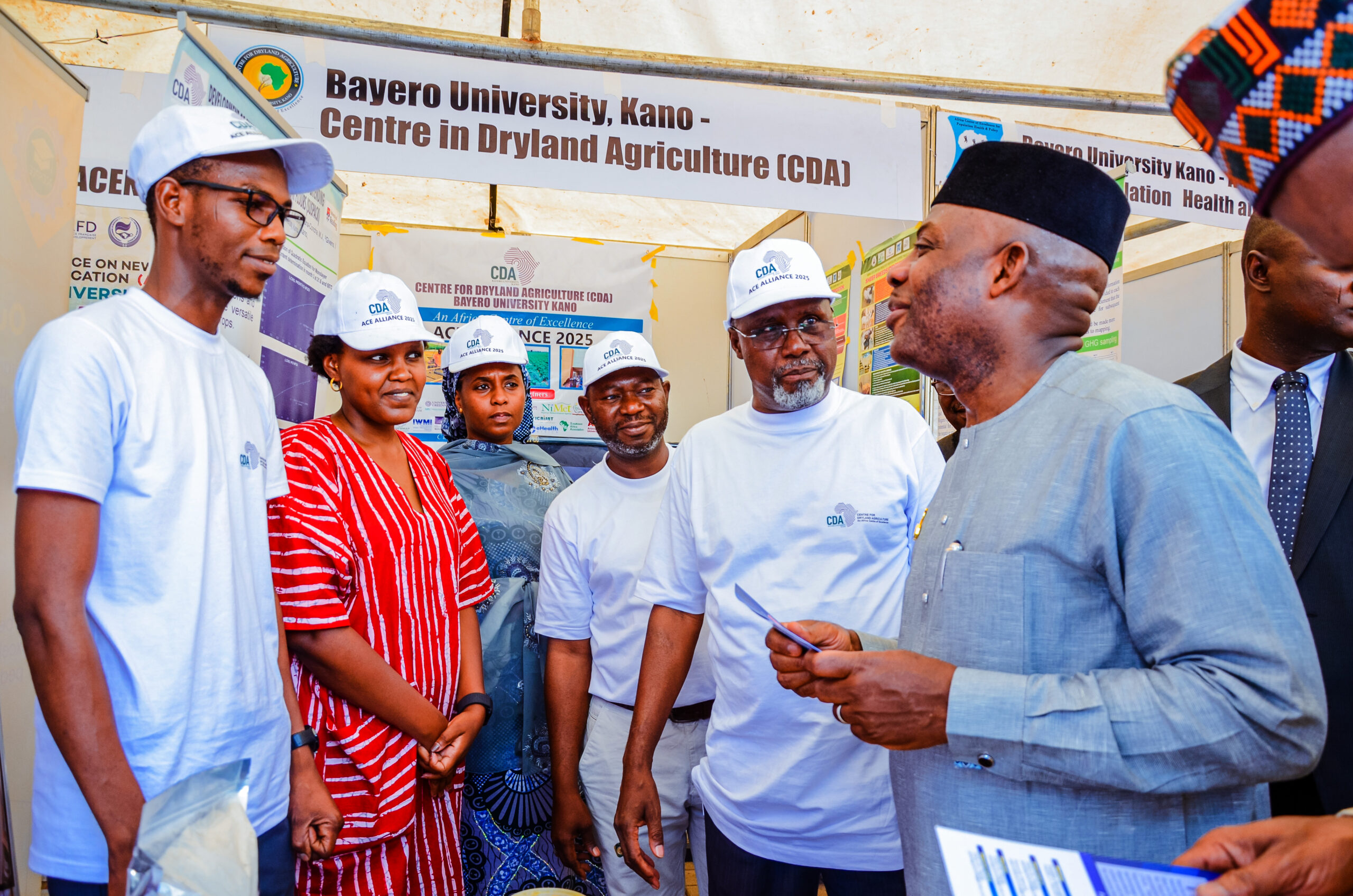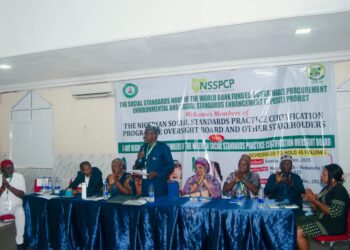By Bala G. Abdullahi, ACEPHAP Communication Officer
In a significant stride toward improving maternal and neonatal healthcare in Nigeria, the African Centre of Excellence for Population Health and Policy (ACEPHAP) at Bayero University Kano (BUK) has partnered with Boston Children’s Hospital, United States, to conduct high-impact simulation training for healthcare providers.
The intensive hands-on training, held recently, aimed to strengthen the clinical competencies of medical residents by immersing them in life-like obstetric scenarios.
According to the Director of ACEPHAP, Professor Hadiza Galadanci, the goal was to equip participants with critical, real-world skills for managing maternal health emergencies ranging from postpartum haemorrhage and pre-eclampsia to neonatal resuscitation and safe delivery protocols.
“This training empowers our healthcare workers to make accurate, timely decisions in obstetric emergencies. By engaging in realistic simulations, participants were able to practice emergency responses within a safe and controlled environment.
“The programme went beyond technical instruction; it fostered crucial soft skills such as teamwork, communication, and confidence, all of which are essential for managing high-pressure situations in clinical settings. The simulated scenarios encouraged collaboration among healthcare teams and helped participants refine their response strategies without the risks associated with real-life emergencies,” Professor Galadanci explained.
She emphasised that introducing advanced simulation-based learning methods is a transformative step toward reducing maternal and neonatal mortality in the region. “By building a more skilled and resilient healthcare workforce, we are bridging critical knowledge gaps and laying the foundation for sustainable improvements in our health systems,” she added.

In a similar development, the Centre has collaborated with the Royal College of Obstetricians and Gynaecologists (RCOG), the Society of Gynaecology and Obstetrics of Nigeria (SOGON) and the Federal Ministry of Health to train medical experts to enhance the skills of gynaecologists.
The training, tagged: The Essential Gynaecological Skills (EGS) Manuals Dissemination Training Workshop, which was also held recently in Abuja, was targeted at improving the skills of gynaecologists to save more lives.
Prof. Galadanci disclosed that the Centre trained expert trainers in states like Kano and Abuja, using mannequins for hands-on procedures such as manual vacuum aspiration and emergency care, and the trainees showed significant knowledge gains, with pre- and post-test results proving the effectiveness of the model.
The Clinical Lead for the Global Health Workforce Programme and Course Director at RCOG UK, Dr. Sam Agwu, in his welcome address, highlighted the initiative’s collaborative strength. He admitted that the assembly of policymakers, medical professionals and technical specialists today demonstrated their common dedication to enhancing the provision of healthcare for women and girls. He added that providing frontline workers with high-quality, useful care tools must be a top priority.
The ESG Manuals were among the documents formally launched during the 2025 Safe Motherhood Day commemoration. It was shared alongside other project outcomes with key stakeholders from six states: FCT, Lagos, Rivers, Enugu, Bauchi, and Kaduna, to promote adoption and facilitate scale-up.
In her address, the Director of the Centre for Global Women’s Health at RCOG, Sarah Hall, expressed worry that “gynaecological conditions in Nigeria had long been overlooked in policies, training, and funding.” She also noted that obstetrics and maternal mortality have received a lot of her Centre’s attention, but problems like infertility and persistent pelvic pain are still not given enough attention. “We hope that the training could be expanded countrywide because it equipped non-specialist healthcare personnel with the necessary skills to close any observed gap.”
During the project overview session, President of the Society of Gynaecology and Obstetrics of Nigeria (SOGON), Prof. Okechukwu Ikpeze, emphasised the importance of bolstering Nigeria’s health workforce. “This programme supports our broader goals of helping women realise their right to health, ensuring access to high-quality care, and reducing gender inequality,” he said.
While pointing out possible difficulties such as staff turnover from trained facilities, he recommended creating a “critical mass of trainers” as a workable remedy. “We now have a core workforce ready to lead implementation, with over 180 healthcare providers trained across multiple states,” he said.
At the end of the training, all the stakeholders agreed that it was critical to expand the training across the country, incorporate the newly created handbook into state-level health plans, and gain political support for long-term use.
































